 Your new post is loading...
 Your new post is loading...
Formal knowledge representation (KR) is about building models of the world, of a particular domain or a problem, which allow for automatic reasoning and interpretation. Such formal models are called ontologies and can be used to provide formal semantics (i.e., machine-interpretable meaning) to any sort of information: databases, catalogs, documents, web pages, etc. The association of information with such formal models makes the information much amenable to machine processing and interpretation.
Cit. Atanas Kiryakov. In Semantic Web Technologies: Trends and Research in Ontology-based Systems; John Davies (Editor), Rudi Studer (Co-Editor), Paul Warren (Co-Editor). pp. 115-138 John Wiley & Sons, Europe. Learn more / En savoir plus / Mehr erfahren: https://www.scoop.it/t/21st-century-learning-and-teaching/?&tag=Ontology
Via Gust MEES, juandoming
Learning throughout life makes sense. Research shows it is good for your health, your wealth, your civic engagement and your family’s future prospects. It prolongs your independent life and enriches your quality of life.
For companies, investing in worker skills makes sense too – it promotes flexibility and creativity, problem-solving, teamwork and an increased sense of agency among staff, making them happier and more productive. These are, of course, exactly the traits needed as companies face of the challenges of the latest industrial revolution.
For governments, supporting learning in later life helps to delay the onset of dependency among rapidly ageing populations; plays an important role in overcoming inequality and exclusion; and supports inter-generational learning, creating more resilient families and communities. More broadly, learning fosters improved well-being.
Jacques Delors, then President of the European Commission, summed this up in 1992 when he argued that lifelong learning was crucial to both economic prosperity and social cohesion. Learn more / En savoir plus / Mehr erfahren: https://gustmees.wordpress.com/?s=life+long+learning http://www.scoop.it/t/21st-century-learning-and-teaching/?&tag=Life-Long-Learning https://gustmees.wordpress.com/2015/03/28/learning-to-learn-for-my-professional-development-i-did-it-my-way/
Via Gust MEES
Scrum is an iterative and incremental agile software development framework for managing product development. It defines "a flexible, holistic product development strategy where a development team works as a unit to reach a common goal", challenges assumptions of the "traditional, sequential approach" to product development, and enables teams to self-organize by encouraging physical co-location or close online collaboration of all team members, as well as daily face-to-face communication among all team members and disciplines involved.
Scrum is an iterative and incremental agile software development framework for managing product development.[1][2] It defines "a flexible, holistic product development strategy where a development team works as a unit to reach a common goal",[3] challenges assumptions of the "traditional, sequential approach"[3] to product development, and enables teams to self-organize by encouraging physical co-location or close online collaboration of all team members, as well as daily face-to-face communication among all team members and disciplines involved.
A key principle of Scrum is its recognition that during product development, the customers can change their minds about what they want and need (often called requirements volatility[4]), and that unpredicted challenges cannot be easily addressed in a traditional predictive or planned manner. As such, Scrum adopts an evidence-based empirical approach—accepting that the problem cannot be fully understood or defined, focusing instead on maximizing the team's ability to deliver quickly, to respond to emerging requirements and to adapt to evolving technologies and changes in market conditions. Learn more / En savoir plus / Mehr erfahren: http://www.scoop.it/t/wordpress-annotum-for-education-science-journal-publishing
Via Gust MEES, Mark E. Deschaine, PhD
“Skills young people should be learning to be prepared for a career in 2020 include:
The ability to concentrate, to focus deeply.
The ability to distinguish between the “noise” and the message in the ever-growing sea of information. The ability to do public problem solving through cooperative work. The ability to search effectively for information and to be able to discern the quality and veracity of the information one finds and then communicate these findings well. Synthesizing skills (being able to bring together details from many sources). The capability to be futures-minded through formal education in the practices of horizon-scanning, trends analysis and strategic foresight.” Learn more / En savoir plus / Mehr erfahren: https://gustmees.wordpress.com/2015/05/26/what-are-the-skills-needed-from-students-in-the-future/
Via Gust MEES
Change Management is a process that should be included in the planning and delivery of a project from the very beginning. The full impact of change is often not taken into consideration in the development of project plans and this is a mistake.
Other times one needs to drive a behavioural changethat results in a project team being formed (Safety/Hygiene etc)
Via Gust MEES
Until now, there have been a variety of tools for managers who wish to measure the emotional cues of individuals, such as the Brief Affect Recognition Test to understand cross-cultural facial expressions. Facial expressions provide a wealth of reliable information about how others are making sense of the world around them, and allow us to tailor our responses to the individual in a one-on-one situation. This represents one of the key measures of emotional intelligence, which evaluates how well individuals perceive and deal with affectively charged interpersonal situations.
Read more at http://knowledge.insead.edu/strategy/leaders-who-can-read-collective-emotions-are-more-effective-4002#VsZzWHkFKKeIo3ac.99But there are situations in which leaders have to deal with the emotions of large groups of people, not just those of one or a few individuals and most managers don’t have time to operate on a one-on-one basis all the time. Understanding the collective can help leaders respond effectively to the group as a whole. This happens in situations such as dealing with the collective anxiety of executives facing the news of corporate restructuring; or public authorities dealing with the collective anger of large groups of people in the streets; or politicians seeking to inspire large groups of people to win an election. Those with the skill to pick up on the subtle emotional cues of the collective can adapt accordingly and, according to our research, earn more respect as a result. So how can this ability to see the forest for the trees be applied by leaders?
Learn more: - http://www.scoop.it/t/21st-century-learning-and-teaching/?tag=Empathy - http://www.scoop.it/t/21st-century-learning-and-teaching/?tag=Daniel+Goleman - http://www.scoop.it/t/21st-century-learning-and-teaching/?tag=EQ
Via Mark E. Deschaine, PhD, Gust MEES, ValerieMalaval
|
What is professional development? It is pretty much anything that helps one develop professionally. At the heart, professional development is about growth and learning. In the field of education, it seems like many quickly think of educational opportunities that mimic what they see in their schools. As a result, they turn professional learning and education into schooling. The problem with that is that schooling is too limiting. In this age, there are many other exciting and high-impact learning opportunities for teachers that extend beyond traditional notions of schooling. When we hear the phrase “professional development,” certain practices likely come to mind, things like in-services and conferences. In the digital age, there are countless other opportunities for professional development and restricting one’s thoughts to just a few options limits our insight into what is possible for our students. With that in mind, here is a brainstorm of 20 options available to educators today. This is far from an exhaustive list, but it is enough to start exploring the possibilities. Feel free to suggest others in a comment to this post. Learn more: Professional Development: WHY EDUcators And TEACHers Can’t Catch UP THAT Quickly AND How-To Change It LEARNing To LEARN For MY Professional Development | I Did It MY Way
Via Gust MEES, Mark E. Deschaine, PhD, Maite Finch
When you experience rejection, it’s natural to take certain measures in order to preserve your self- esteem, like trying to fit in with a social group and gain their approval. However, research has shown that people who view themselves as independent may be somewhat immune to the negative effects of rejection, and may even use social rejection as creative fuel. Sharon Kim and her colleagues, who conducted the study, hypothesized that these boosts in creativity were fueled by a differentiation mind- set, or as they put it, “salient feelings of being different from others.” Independent people not only may be resistant to the negative consequences of rejection but indeed may be strengthened by experiences that reaffirm their sense of independence. As Kim puts it, “Independent selves are motivated to remain distinctly separate from others.” This motivation may, in turn, trigger psychological processes that boost creative thinking. Rejection is not just a catalyst for creativity—it can also be a by-product of it. As the study’s authors write, “The very traits that distinguish highly creative people, such as unconventionality, make them easy targets for rejection.” Learn more / En savoir plus / Mehr erfahren: http://www.scoop.it/t/21st-century-learning-and-teaching/?tag=Creativity https://gustmees.wordpress.com/?s=creativity http://www.scoop.it/t/21st-century-learning-and-teaching/?tag=Sir+Ken+Robinson
Via Gust MEES, Mark E. Deschaine, PhD
|



 Your new post is loading...
Your new post is loading...







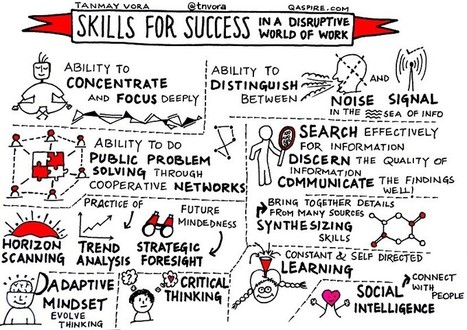



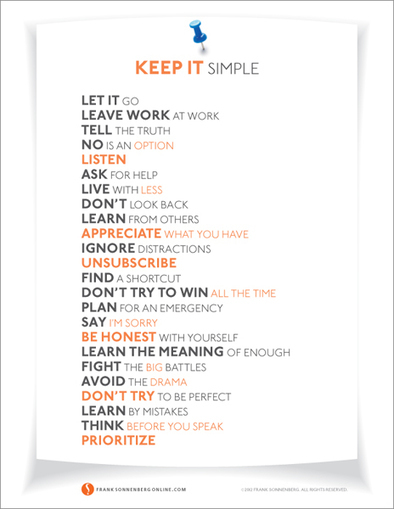






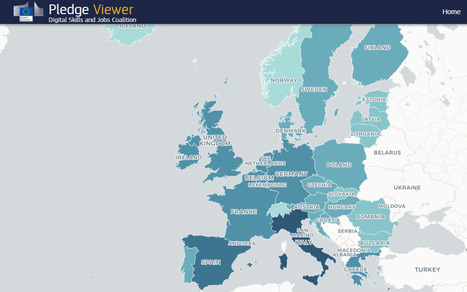

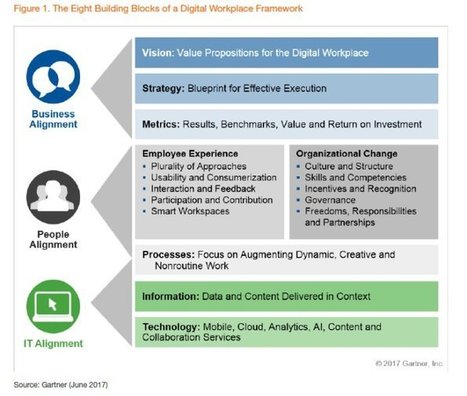








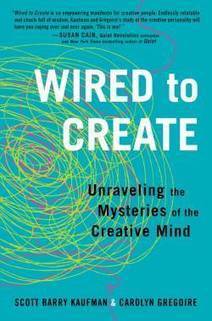
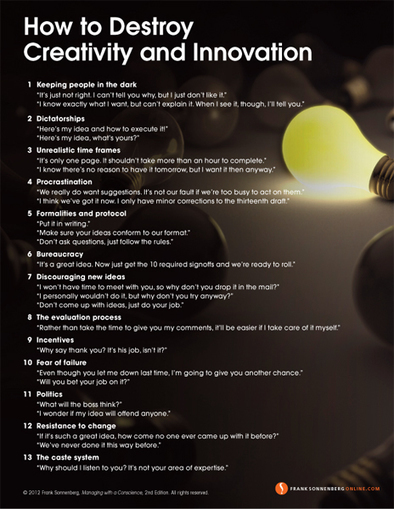








Formal knowledge representation (KR) is about building models of the world, of a particular domain or a problem, which allow for automatic reasoning and interpretation. Such formal models are called ontologies and can be used to provide formal semantics (i.e., machine-interpretable meaning) to any sort of information: databases, catalogs, documents, web pages, etc. The association of information with such formal models makes the information much amenable to machine processing and interpretation.
Cit. Atanas Kiryakov. In Semantic Web Technologies: Trends and Research in Ontology-based Systems; John Davies (Editor), Rudi Studer (Co-Editor), Paul Warren (Co-Editor). pp. 115-138 John Wiley & Sons, Europe.
Learn more / En savoir plus / Mehr erfahren:
https://www.scoop.it/t/21st-century-learning-and-teaching/?&tag=Ontology